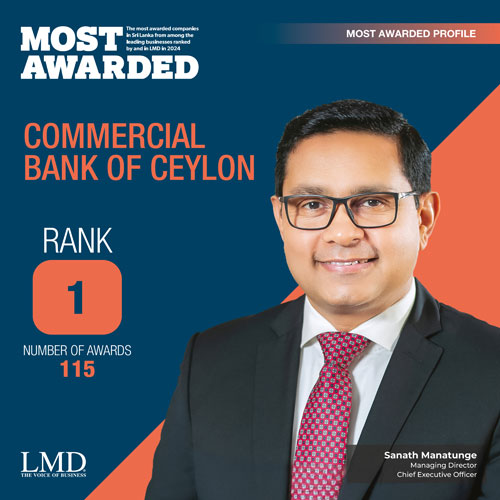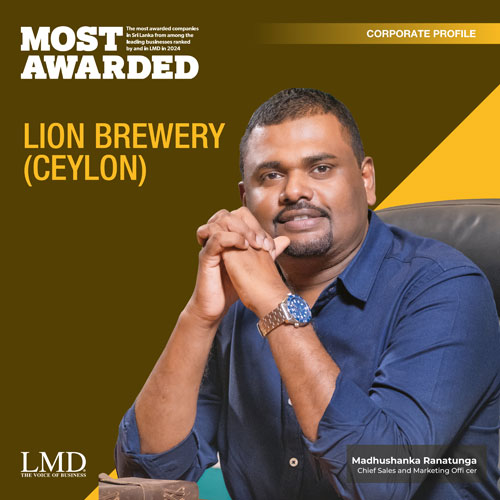DRIVING EXCELLENCE
Instilling Transparency
Gayan Perera

Q: In your opinion, how do awards contribute to elevating standards and practices within organisations or institutions?
A: Awards competitions targeted at corporates, organisations and individuals come in two forms – those requiring applications for evaluation and those where winners are selected based on specific criteria without applications while some may require an entry fee.
Awards help organisations assess their industry standing. They can be categorised by scope – such as evaluating the overall performance or focussing on specific disciplines including marketing, human resources or finance.
Participating in awards drives competitiveness, discourages complacency and fosters an excellence driven culture, improving organisational performance.
Awards set industry benchmarks, allowing smaller organisations to learn from top performers and raise standards. For corporates, winning boosts their image and strengthens stakeholder confidence.
Internally, awards motivate employees through recognition, which improves job performance and career advancement. The awards process also helps individuals gain industry visibility and recognition for their skills.
Additionally, awards encourage networking and professional relationships, offering opportunities for knowledge sharing and learning.
Q: What measures should be taken to maintain transparency and impartiality in the evaluation and selection criteria?
A: It is essential to ensure fairness by appointing an independent jury chair and panel with external industry experts to avoid bias.
Transparent evaluation criteria should be published in advance with applicants given sufficient preparation time. Information can be shared through briefing sessions, webinars or press conferences.
Non-disclosure agreements (NDAs) with jury members and a recusals system for conflicts of interest protect sensitive information and maintain impartiality. A computer based judging system reduces errors, incorporates advanced scoring methods such as the Olympic system and monitors patterns for consistency. In addition, an analyst can oversee and address inconsistencies.
Lastly, involving an independent audit firm to verify the process and results ensures credibility, accuracy and transparency, upholding the integrity of the awards.
Q: And what challenges do you face as an awarding body?
A: The main challenge in organising awards is convincing organisations of their value, as participation demands extensive time, effort and financial resources. Proper organisation includes participant briefs, media conferences, help desks and a rigorous entry process.
Misconceptions that awards can be bought undermine credibility, countered by professional bodies through disciplined and transparent practices.
Ensuring independent judging is vital, requiring credible judges, commitment and addressing no-shows to avoid delays. Advancing AI technologies complicate verifying entry authenticity, as content generated by artificial intelligence can bypass screening tools.
Perceptions that sponsorships guarantee awards and balancing expenses such as event management, venue costs and marketing while maintaining quality are additional hurdles. Non-profit bodies rely on self-sufficiency to cover costs.
Continuity is also a challenge, as yearly changes in governing bodies can disrupt quality. Effective knowledge transfer is crucial to maintain consistency and improve standards.
Q: What steps should be taken to ensure that awards are more inclusive and representative of smaller or emerging businesses?
A: When organising awards for emerging sectors or smaller businesses, tailored approaches such as SME awards or targeted categories in broader events – for example, ‘SME Brand of the Year’ or ‘Online Campaign of the Year’ – are crucial.
Special pricing is essential to encourage participation with reduced fees for applications and event attendance. Offering PR exposure, such as interviews and social media features for winners, helps smaller businesses gain visibility and motivates annual participation.
In addition, supporting SMEs is vital, given their contribution to 54 percent of Sri Lanka’s GDP. Recognising specialised segments such as women in male dominated fields promotes diversity, and encourages greater participation in challenging professions.
Finally, addressing language barriers by allowing submissions in local languages ensures broader participation, making awards more inclusive for smaller businesses and specific segments.




